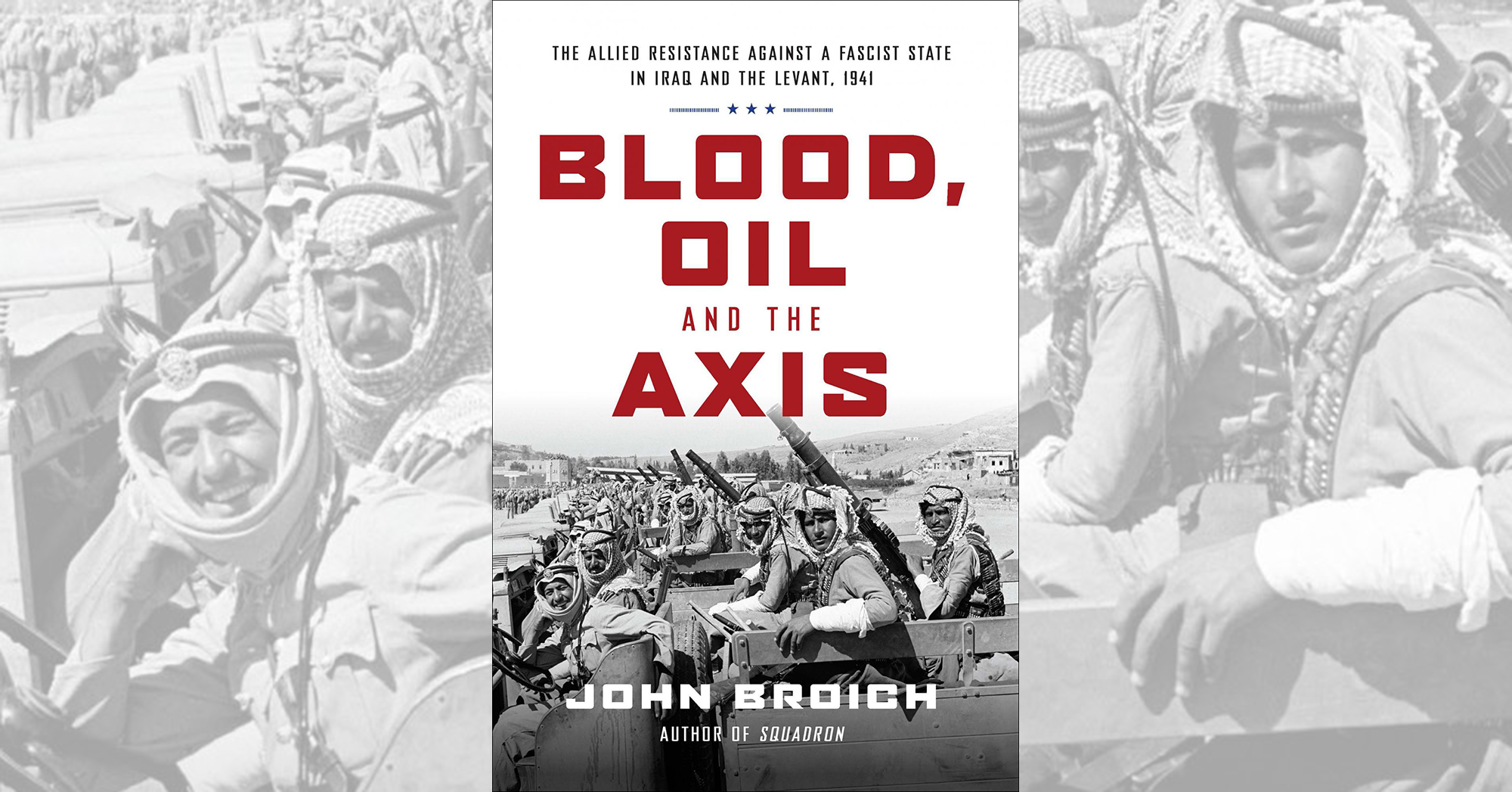Blood, Oil and the Axis: The Allied Resistance Against a Fascist State in Iraq and the Levant, 1941, by John Broich, Abrams Press, New York, 2019, $35
John Broich, a professor of British imperial history at Case Western Reserve University and the author of Squadron: Ending the African Slave Trade (2017), explores Britain’s desperate 1941 campaign to defend the vital Suez Canal and crucial oil supplies from pro-fascist regimes in Iraq and Syria. Subject to the political unrest and military conflict fomented by Axis powers Germany and Italy, Broich argues that Suez and its 2,000-mile surrounding sphere, a literal ring of fire, was the center of the world battle between democratic and anti-democratic forces. Inhabitants of the Middle East, mainly Muslims but especially Arabs, were forced to either back their British colonial overlord or, strange as it may seem, gamble on a better future from the Axis. The author focuses on an array of remarkable individuals cobbled together from many lands into a British-led makeshift force determined to turn back this dire threat.
The book recounts the pro-fascist coup in Iraq led by Rashid Ali al-Gaylani, which ousted the pro-British government and besieged the Royal Air Force base at Habbaniya. The British mounted a successful counterattack using outnumbered yet determined forces, including many Arab and Indian elements. The British-led army, which included thousands of Australians and Free French, invaded Syria, removing the Vichy French regime that facilitated Axis logistical support to Iraq. Broich skillfully weaves the accounts of such notable participants as British officer John Masters (author of the classic The Road Past Mandalay), RAF pilot (and future children’s book author) Roald Dahl and American adventurer Jack Hasey (who served in the Free French Foreign Legion), while also studying the crucial role played by an obscure Arab interpreter and intelligence operator known only as “Reading.”
Blood, Oil and the Axis boasts extensive endnotes, excellent maps, well-chosen photographs and a useful list of characters. It is a generally well-written “boots on the ground” narrative. That said, it suffers a lack of perspective from political leaders such as Winston Churchill, Adolf Hitler and Benito Mussolini, which would have resulted in a more integrated and coherent examination. In addition, while the 2003 invasion of Iraq is never mentioned in the text, chapter headings are implicitly critical of that conflict, unnecessarily marring what is an otherwise creditable World War II campaign history.
—William John Shepherd
This post contains affiliate links. If you buy something through our site, we might earn a commission.





